TYPE OF SURGERY:
- Ambulatory Surgery: are procedures from which you are able to go home the same day without an overnight stay. Ambulatory surgery is also called outpatient surgery. The majority of surgeries performed by Dr. Taylor are ambulatory.
- 23-Hour Stay: some patients may be advised to stay overnight for observation, pain control, or due to a late case. Patients with sleep apnea are required to stay overnight for observation unless cleared by the anesthesiologist.
- Inpatient: are surgeries with an anticipated hospital stay greater than 23-hours. Details regarding room allocation, private rooms, television, telephone, Internet, and private duty nursing are available upon request.
MEDICAL CLEARANCE:
- Depending upon the planned surgical procedure and your medical history, you may be required to undergo Pre-Admission Testing, medical clearance, and/or obtain clearance from a specialty consultant such as a cardiologist or hematologist.
- No Medical Clearance required: young healthy patients scheduled for ambulatory surgery are not required to undergo any special pre-admission testing.
- Pre-Admission Testing (PAT), also known as Pre-Surgical Screening, is an HSS service completed within 10 days of your surgical procedure.
- Includes blood and urine tests, x-rays, and EKG.
- Patients scheduled for inpatient surgery will also have a consultation with a medical doctor.
- Bring your medications (prescribed and over the counter) with you to the PAT appointment.
- Medical Clearance: may be obtained from your primary care doctor or by appointment at HSS main campus.
- If your primary care doctor is to clear you for surgery, they must fill out the “Adult Medical Consultation” form. This form can also be downloaded from our website, www.SamTaylorMD.com. You are responsible for providing this form to your doctor.
- Medical clearance must be completed no more than 10 days prior to your scheduled surgery.
- All outside test results and the medical clearance note must be faxed to our office, (203) 705-2929, no later than the Thursday prior to your scheduled surgery.
- Cardiologist Clearance: is required if you have cardiac stents, a pacemaker, history of an arrhythmias, have had any kind of heart surgery, or have had a heart attack.
- Hematology Recommendations: may be requested if you have a personal history of blood clot (DVT or PE) or a strong family history of blood clots.
- Additional Medical Subspecialty Recommendations: may be requested based upon specific aspects of your health history.
- Blood Thinners: If you take a blood thinner (Warfarin, Coumadin, Plavix, Clopidogrel, Aspirin, Heparin, Aggrenox, Lovenox, Enoxaparin, Xarelto, Rivaroxaban, etc.), you MUST have specific instructions from the prescribing physician regarding stopping and restarting of these medications. In general, we recommended these medications be discontinued approximately 7-10 days prior to your planned procedure. Please follow your prescribing doctor’s recommendations.
MEDICATIONS:
- Please contact your medical doctor before discontinuing any medications.
- You take Tylenol up to the time of surgery as needed for pain.
- Do NOT take anti-inflammatories (Aspirin, Naprosyn, Aleve, Advil, Motrin, Ibuprofen, etc.) within 10 days of surgery. These medications increase the bleeding risk during/after surgery.
- Do NOT take any herbal medications, natural products, or vitamin supplements (alfalfa, capsicum, celery seed, chamomile, chondroitin, clove, dandelion, dong quai, feverfew, fish oil, flax seed, gamma linoleic acid, garlic, ginger, gingko, ginseng, glucosamine, horseradish, licorice, liver oil, melatonin, onion, papain, papaya, parsley, passionflower, poplar, resveratrol, sweet cover, turmeric, willow bark, etc.) within 10 days of surgery. Many of these increase bleeding risk during/after surgery.
- Birth Control: may increase the risk of developing a blood clot following lower extremity surgery. It is recommended that you stop birth control until you are full weight bearing and are walking normally without crutches.
- Blood Thinners: As above.
PREPARING FOR SURGERY:
- Insurance Coverage: our office will call for pre-certification with insurance if required. Please be advised that this process does take time. You should contact your insurance company directly with any questions regarding coverage and benefit information.
- Immunization Record: anyone under 18 years of age must obtain a copy of the immunization records from your school or pediatrician’s office.
- Bring Imaging Studies: (X-ray, MRI, or CT scan) performed outside of HSS with you on the day of surgery.
- Arrange Escort: Please make arrangements for someone to take you home. The hospital requires that ambulatory surgery patients arrange for an escort home. You will not be allowed to leave the hospital without an escort. In some cases, surgery may be cancelled if you have not established this arrangement upon registration.
- Ice Machine: icing is very important and helps reduce inflammation and improve pain control. You may wish to purchase one of the commercially available ice machines (GameReady®, AirCast®, Cothera®, etc.). These are rarely covered by insurance, so they may represent out of pocket costs (typically $225-$350). Most patients who purchase one of these ice machines are very happy with their investment. One of the HSS vendors will reach out to you prior to surgery.
DAY BEFORE SURGERY:
- Wash Body with Hibiclens: which is a special type of soap that kills germs on contact and can continue working for up to 24 hours! It can be purchased at your local pharmacy (www.hibiclens.com) without a prescription. Hibiclens kills the bacteria on your skin that can cause infection after surgery. It is gentle enough for sensitive skin and has been shown to reduce infection rates. Do NOT use if you have an allergy to chlorohexidine gluconate. Below are instructions for its use:
- Wash your hair first using using regular shampoo.
- Rinse hair and body thoroughly with warm water to remove any shampoo residue.
- Move away from the shower stream when applying Hibiclense to avoid it rinsing off too soon.
- Apply Hibiclens directly on your skin or using a wet washcloth.
- Allow Hibiclens to sit on your skin for 2-5 minutes
- Rinse thoroughly with warm water.
- Do NOT use regular soap after applying and rinsing Hibilens.
- Do NOT apply any lotions to your skin.
- Do NOT eat or drink anything after midnight before your surgery unless specifically instructed by an HSS representative over the phone.
- You will receive a call from a member of the HSS nursing staff between 2pm and 7pm on the day before your surgery regarding the time of the procedure and when you need to arrive. In general, you should plan on arriving at the hospital 2 hours before the planned start time.
- Recorded pre-operative information is available by calling (212) 606-1630.
- If you have not heard from HSS by 7pm the day before your scheduled surgery, please call (212) 606-1710 and explain that you are awaiting pre-surgical instruction.
- HSS (not our office) determines the surgical schedule. As such, changes/delays in your OR time may occur due to unforeseen emergencies. Please be understanding of the dynamic nature of the OR schedule.
DAY OF SURGERY:
- What to Bring:
- One Small Bag: will be securely stored during surgery.
- Verification of Identity: bring a government issued identification.
- List of Medications: including prescribed, over-the counter, and herbals.
- Immunization Records: mandatory for those younger than 18 years.
- Telephone numbers of people you want to call.
- Primary Care Physician’s Contact Info
- Pregnancy Test: is mandatory for all women who are menstruating and menopausal women who have menstruated within the preceding year.
- History and Physical Examination: will be performed by an HSS physician assistant.
- Dr. Taylor will meet with you before surgery, confirm the planned surgical procedure, answer any remaining questions, and mark the operative site with his initials.
- Anesthesia: You will meet with the anesthesiologist prior to surgery and have the opportunity to ask questions about the type of anesthesia you will be receiving.
- Regional (nerve block) Anesthesia: is a technique where a portion of the patient’s body is rendered insensitive (numb) so that you don’t feel any pain during surgery. You will also be given sedation so that you sleep through the procedure, however you continue to breath on your own. We prefer regional anesthesia for most patients.
- General Anesthesia: is when you are completely asleep during the procedure, and require a breathing tube.
AFTER SURGERY:
- Recovery Room (PACU): the anesthesia team and nursing staff will monitor your postoperative care and your return to full awareness. Regardless of the type of anesthesia performed, you will stay at the hospital until your condition is stable and you are safe to leave.
- Postoperative Instructions: you will be provided detailed postoperative instructions after surgery. If you wish to review general postoperative instructions and answers to frequently asked questions prior to your surgery you can do so on our website www.SamTaylorMD.com.
- Prescriptions: you will be given prescriptions for pain medication and any other required medications after surgery.
- Discharge: in order to be considered safe to go home you must be able to stand up and walk without felling dizzy or lightheaded, tolerate food and drink, and be able to urinate. When you are considered safe to leave, the person escorting you home will be asked to bring the car to the main hospital entrance. HSS surgical personnel will escort you to the car and assist with your departure.
- Phone Call: Dr. Taylor will call you the day after surgery to check on you and answer questions.
- First postoperative visit: typically occurs 10-14 days after surgery. Please call the office to arrange.
RETURNING TO WORK OR SCHOOL:
- This varies widely by patient and type of surgery performed
- Many patients are able to return to sedentary work or school 3-7 days after surgery.
- You must no longer require narcotic pain medication during work/school hours.
- Dr. Taylor will determine when you may return to more physically rigorous demands.
- If you require any specific letters for work or school please let us know.
BILLING:
- The surgical fee will include three post-operative visits within 90 days of surgery. If you have any questions and would like to speak with someone from the billing department please call our office (203) 705-0750 or (646) 714-6324.

